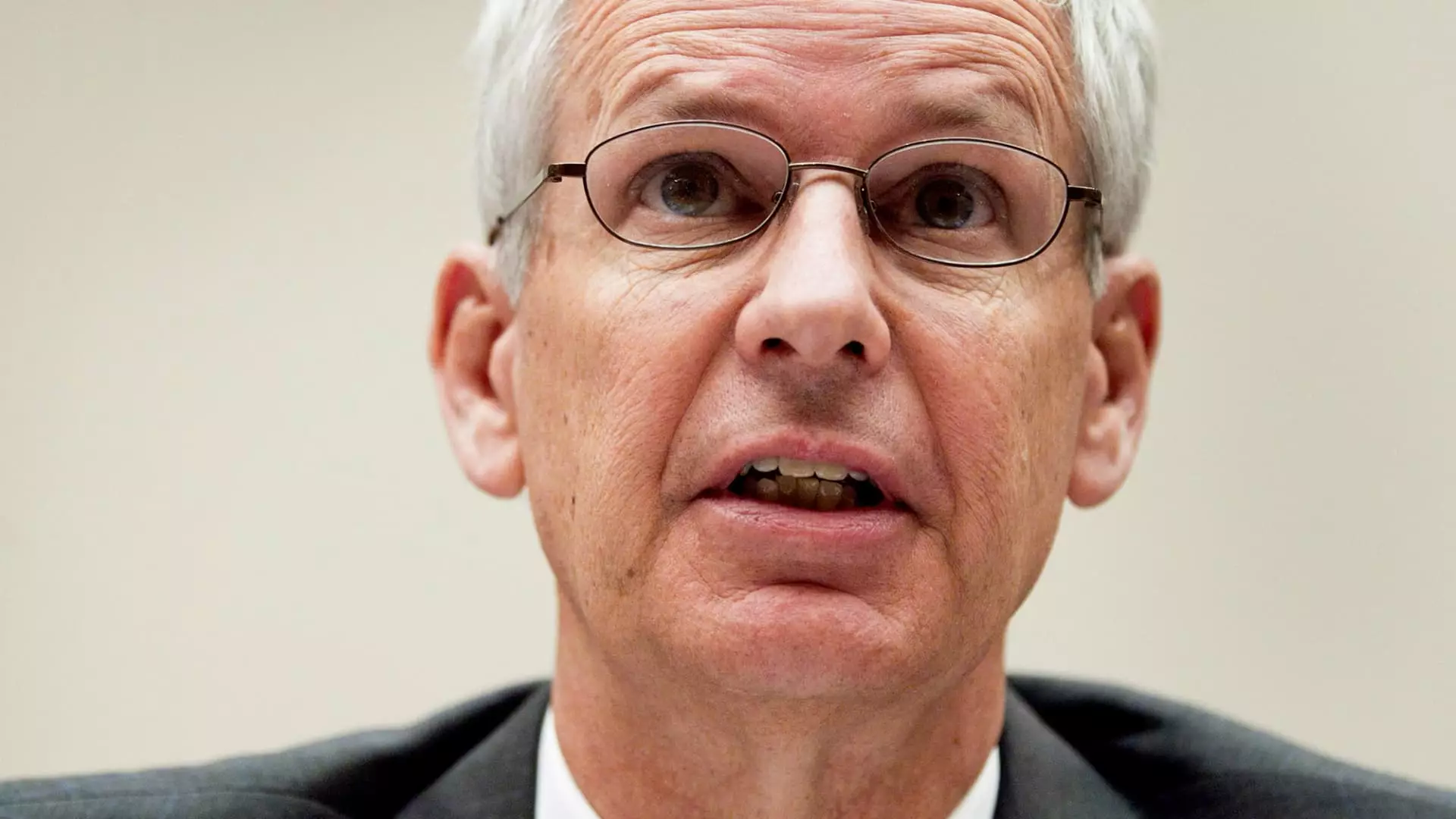In a world rapidly shifting towards digital streaming, the fate of traditional pay-TV providers like Dish Network serves as a stark reminder of the challenges faced by legacy businesses. The situation has been metaphorically likened to the controversial finale of the iconic sitcom “Seinfeld.” Just as fans were left dissatisfied by the show’s ending, Dish’s trajectory seems to be culminating in a similarly disappointing narrative, highlighting the perils of clinging to outdated business models amidst evolving consumer preferences.
The rumblings of trouble began as early as 2011, when Dish co-founder Charlie Ergen, in an earnings call, likened the company’s confusing assets to the disjointed storylines of “Seinfeld.” Ergen hinted at a potential connection between seemingly disparate elements that might eventually converge into a cohesive strategy. However, as time passed, it became clear that this vision remained elusive. Instead of unveiling a triumphant business model, what culminated in recent days was the disappointing revelation of EchoStar, Dish’s parent company, selling the pay-TV provider to DirecTV for merely $1, compounded by a staggering $9.75 billion in associated debt.
This transaction encapsulates the financial turmoil that has befallen Dish, evidenced further by an 11% drop in EchoStar stock following the announcement. The telecommunications landscape has shifted dramatically, and the once-mighty Dish Network finds itself struggling to adjust, grappling with the loss of millions of subscribers to streaming giants and operators offering diversified internet services.
The Decline of Pay-TV and the Rise of Streaming
The transformation within the content distribution industry is stark. Both Dish and DirecTV have lost approximately 63% of their video subscribers since 2016, illustrating a significant industry-wide trend that cannot be ignored. As consumers increasingly turn to on-demand streaming services, conventional cable and satellite providers are rapidly becoming anachronisms. The age of subscription fatigue and the quest for content accessibility has led businesses like EchoStar’s Dish to bear the brunt of a decline that industry leaders like Akhavan openly acknowledge as a rapid loss of clientele.
This ongoing shift reflects a broader cultural and technological transformation. As traditional entertainment models lose their grasp, companies like Netflix, Hulu, and Amazon Prime Video have repositioned themselves as primary content sources, effectively rendering conventional cable options less appealing to today’s generation.
Dish Network’s attempts to adapt to this changing environment involved a significant pivot towards becoming a nationwide wireless carrier. However, the company faced severe roadblocks, struggling to align its core pay-TV business with a new wireless strategy. These strategic miscalculations have cost Dish dearly, particularly as it declined to merge with DirecTV in 2014, a decision that, in hindsight, appears monumentally misguided. At that time, DirecTV was valued at $40 billion, while Dish held a respectable market valuation of over $28 billion. The decision to remain independent has since led to a dramatic decrease in enterprise value and a loss of market relevance.
Acquiring Boost Mobile as part of a divestiture from T-Mobile in 2019 was supposed to reinvigorate Dish’s prospects, but lacking a significant partner and the necessary capital has resulted in stagnation. As Akhavan stated, the multiple pathways Dish ventured into became more of a management distraction than a solution to their problems.
As EchoStar consolidates its ownership of Dish and the integration process unfolds, one can’t help but draw parallels to the finale of “Seinfeld,” where the promising plot lines yielded a lackluster conclusion. Dish Network’s story appears to be heading in a similar direction—marked by misaligned strategies and unfulfilled expectations. What remains is a cautionary tale of a once-prominent entity now hindered by its inability to adapt to a fast-paced digital environment. The case of Dish Network serves as a manifestation of the perilous implications that ensue when adaptability and foresight are eclipsed by stagnation.

